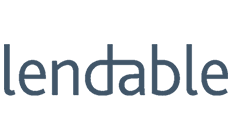Our Lenders
We work with trusted brokers to give you access to a panel of leading lenders well placed to meet your needs at the lowest rates.










First-time buyer mortgages can be a great way for people to get their first step of the property ladder.
Buying your first home can be a daunting thought, with various different factors to consider, not only in buying the property but also in applying for a mortgage. We’re here to help you understand this process better, answering some of the most commonly asked questions around first-time buyer mortgages.
Partnered with
What Qualifies as a First-Time Buyer?
As the name suggests, a first-time buyer refers to someone who is buying their first property.
This type of buyer will have never owned a residential property before. First-time buyer schemes are designed for this type of prospective buyer, and therefore, anyone who has owned a residential property before is unlikely to qualify.
It’s important to fully understand what qualifies as a first-time buyer, as the schemes and mortgage options available for these types of borrowers have strict criteria for applicants. If you are buying a property together with someone who’s owned a house before, or a parent/guardian (who is also a homeowner) is buying the house for you, this will not be classed as a first-time buyer purchase.
Additionally, even if you haven’t bought a house before, but have inherited a house, you still can’t be classed as a first-time buyer.
Am I Eligible for a First-Time Buyer Mortgage?
As with any type of mortgage or secured loan, the eligibility criteria for a first-time buyer mortgage can vary depending on the lender and the applicant’s unique circumstances. However, some common eligibility criteria lenders may have for first-time buyers can include the following:
- Must be a first-time buyer (those who have inherited a house or had a house bought for them are not classed as first-time buyers)
- Good credit rating
- Regular, stable income
- Holds a 10% deposit for the property
If you are applying for a first-time buyer scheme, you may also have to meet additional eligibility criteria, depending on the scheme.
What Schemes Are Available for First-Time Buyers?
There are a range of different schemes available for first-time buyers, helping to support them whilst taking their first step on the property ladder. Schemes for first-time buyers include:
- Help to Buy – where the government will lend first-time buyers a maximum of 20% the cost of the home, borrowers are then left with a 75% mortgage to repay.
- First Homes – offering first-time buyers a discount on the market value of a new build home. The discount offered is 30%, and helps buyers reduce the amount of money needed for a deposit.
- 95% Mortgage Scheme –enabling first-time buyers to get a mortgage with only a 5% deposit. Only available for properties valued at up to £600,000.
How Do I Get a First-Time Buyer Mortgage?
When looking for a mortgage as a first-time buyer, it’s important to consider what type of this loan option would work best for you, and how much you can realistically afford to borrow.
As with any type of mortgage, the bigger the deposit you can afford the more mortgage options open up to you. When looking to make your application more desirable to lenders, it’s good to focus on the following aspects of your finances:
Boost credit score: lenders will often take your credit score into consideration when deciding how much of a risk you are to lend to. Therefore, having a good credit score can help to improve your chances of success with a mortgage application. Various different things affect your credit score, finding out what these are and working to improve your rating can help to boost your application.
Spend sensibly: one way lenders assess your application is through your expenditure. If you’re self-employed with a fluctuating expenditure this may deter lenders away from offering you a loan. Keeping an eye on your transactions and spending sensibly may help to reduce the risk of this happening.
Build up a sizeable deposit: as previously mentioned, the bigger the deposit the more mortgage options you’ll have. Therefore, it’s wise to save up as much of a deposit as you can to increase your chances of being approved with a lender.
Partnered with
What’s the Minimum Deposit for a First-Time Buyer Mortgage?
For a first-time buyer mortgage, you’ll likely be looking to have a deposit of 5%-10%, or a 95%-90% mortgage deal. It’s best to save as big of a deposit as you can, as this will open up more borrowing opportunities for you.
The minimum deposit you’ll be expected to provide can vary depending on the mortgage you’ve decided to go with. With low deposit mortgages available, it’s best to go for options that best suit your needs and can accommodate to the deposit size you’ve saved up.
Costs To Consider With a First-Time Buyer Mortgage
As with anyone applying for a mortgage and buying a house, there are a range of different costs to consider. When you’re a first-time buyer, trying to understand all of the fees and costs that come with this it can feel a bit overwhelming. However, once you learn all of this, you’ll be in a much better position to move forward with the property-buying process.
Below is a list with some of the main costs to consider when buying your first home:
- Stamp duty land tax (SDLT) – a type of tax you need to pay when buying a property or piece of land that’s over a particular value. Find out more on Stamp Duty and how it works.
- Mortgage arrangement fees – a fee you pay to your lender for setting up the mortgage. The average cost for a mortgage arrangement fee is around £1,000, but can sometimes go up to £2,000.
- Valuation fee – a fee you pay to survey the property you’re looking to buy, the cost for this can vary, and sometimes is offered free with the mortgage.
What Mortgages Are Best for First-Time Buyers?
There are a range of different mortgages that could be appropriate for first-time buyers, including the following:
- Fixed-rate mortgages
- Tracker mortgages
- Offset mortgages
It’s good to explore the variety of options available to you before deciding on a particular type of mortgage, as this will help you to make a more informed decision on your borrowing.
Buying a house can be one of the biggest financial decisions in a person’s life, therefore, it’s important to opt for the offer that best suits your needs and unique circumstances.